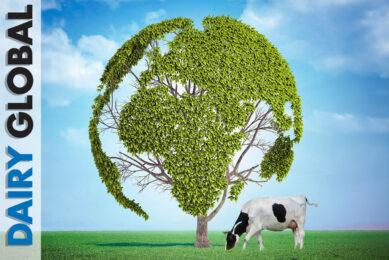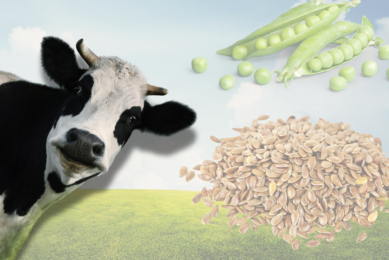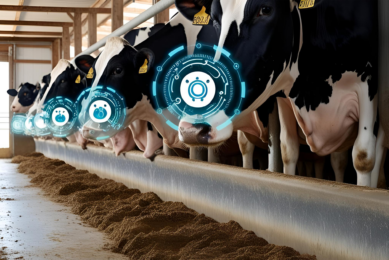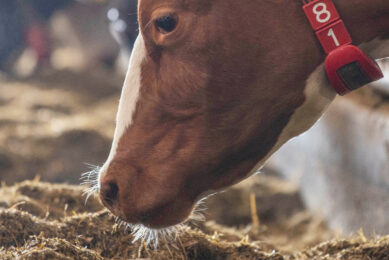Almost there: Carbon-neutral dairy farming in Australia
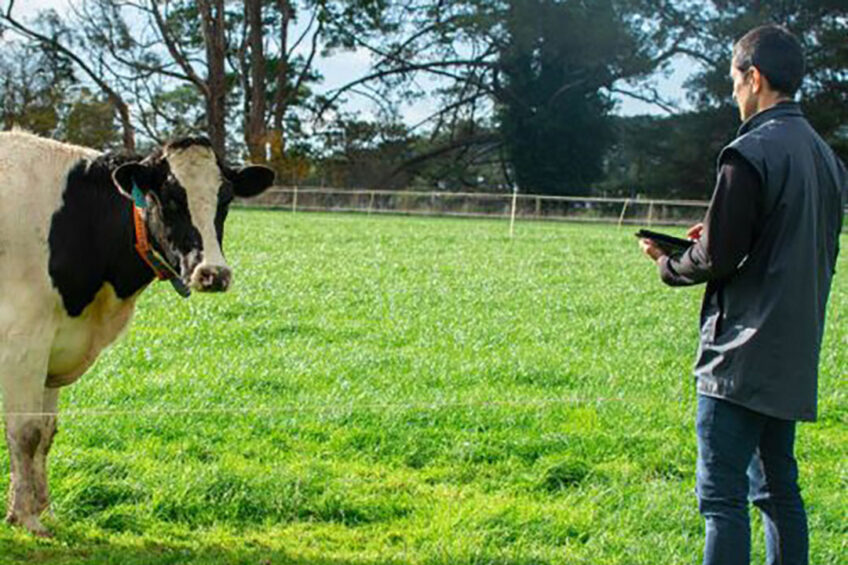
There’s a certain group of 500 dairy cows in the state of Victoria, Australia, that don’t know it, but they’re in a high-stakes competition.
They reside at the new SmartFarm at Ellinbank owned by Agriculture Victoria, which is aiming (like some others around the world) to be the first carbon-neutral dairy farm on the planet.
Briefly put, SmartFarm’s scientists and other staff are working on a 3-pronged plan to:
- reduce methane emissions;
- generate electricity through solar, wind and bio-digesters;
- and, use better practices related to fertiliser and manure management.
New tech, innovation, skills development and research
While the government-owned farm of 231 hectares has been operating for over 50 years and has already supported major gains in productivity and sustainability for Australia’s dairy sector, it only became a ‘SmartFarm’ in January.
Agriculture Victoria has 3 other SmartFarms relating to beef, crops and more, developed in partnership with industry, the education sector and various communities. Each one has a focus on new tech, innovation, skills development and research. The SmartFarms are connected to each other and to a recent centre called AgriBio.
Aiming for carbon-neutral dairy farming
On any dairy farm, reducing methane emissions is critical to reaching carbon neutrality as it’s among the most intense greenhouse gases. Most methane is released to the air through cow burps, but some are also emitted through waste (along with some nitrogen greenhouse gases). In addition, on any typical dairy farm, CO2 is obviously emitted through fuel/energy use.
At the recent COP26 climate summit, the US and the EU announced a global pledge to slash methane. EU Commission chief, Ursula von der Leyen, said cutting methane was “one of the most effective things we can do to reduce near-term global warming”.
Genetics and feeding stategies in dairy cows
Dairy cattle methane emissions have already been reduced a little through genetics and various feeding strategies (reducing nitrogen in the feed, for example, reduces nitrogen released from waste). The addition of red seaweed to feed is showing promise to cut methane from burps to almost nothing, and methane from waste can be captured in biodigesters. It is then burned in generators and engines (which yes, emit CO2) to create electricity and heat, and can also power tractors and other farm vehicles.
A biodogester and solar panels
A biodigester is planned for the SmartFarm at Ellinbank. “We’re converting our fleet of 10 side-by-side vehicles to electricity which will be produced on-site,” said Professor Joe Jacobs in a recent Agriculture Victoria article. “We’re already using 2 such vehicles and we’re finding them easier and cheaper to maintain, and capable of doing everything their petrol and diesel equivalents can do.”
Almost 100 kW of electricity from solar panels is being generated on the farm, which with a 100-kWh battery in place, produces 40% of the farm’s electricity needs. Up to 600 kW more may be added to power the farm’s office buildings.
Leading the carbon-neutral and sustainability charge
The SmartFarm and Ellinbank expects to reach carbon neutral status by 2026. Whether another farm in another part of the world will grab this title first is anyone’s guess, but certainly farms in warmer locations (where the amount of heat needed to keep buildings warm is lower) have an advantage.
Among those dairy farms leading the sustainability charge is Park Farm, a commercial research farm owned by the University of Cambridge in the UK. While Park Farm has not declared carbon neutrality to be an official goal, recently, in September 2021, it hosted the Farming for Clean Air show where the New Holland’s new T6 180 methane-powered tractor was demonstrated, fuelled by methane from Park Farm’s digester. Back in 2011, solar panels were installed, in 2019 inefficient lighting was replaced with LED lights, and in 2020, it adopted a 10-year sustainability policy.
Watch an introduction to the SmartFarm at Ellinbank here.
Join 13,000+ subscribers
Subscribe to our newsletter to stay updated about all the need-to-know content in the dairy sector, two times a week.



